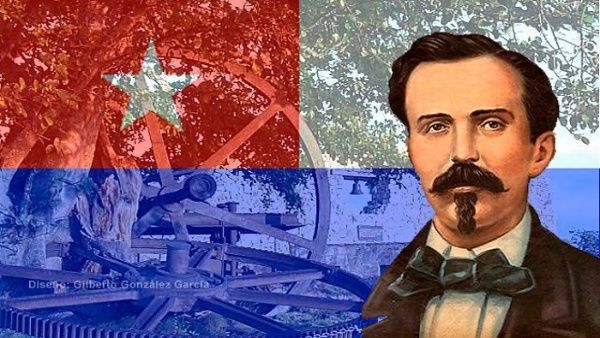In addition to oratory, writing proclamations for independence and manifestos, beautiful letters to his wife, the great man of October 10, Carlos Manuel de Céspedes , cultivated poetry.
Endowed with culture, which comes from reading and studying, as well as travel, Céspedes dabbled in poetry, not as occasionally as is sometimes claimed. Poetry figured among his spiritual preferences. And he didn't do badly with her. Here is a sample of his patriotic poetry:
It is not possible, by God!, that they are Cubans
those who drag impious servitude,
They go to the dance, to the fence and to the orgy,
insulting the pain of his brothers.
Such horrible abjection, such villains,
so black affront and so much bastardity
fruit have not been from my homeland;
So much decline does not fit in my countrymen.
Those who see the chain yoked,
licking, infamous!, outrageous yoke,
They are traitors, without a homeland, debased,
who flatter their executioner out of fear;
They are abortion of the deep Baratro
to confront humanity and the world.
Born in Bayamo on April 18, 1819, his initial studies were continued at the San Carlos Seminary in Havana. He later graduated with a Bachelor of Laws and finally a Law Degree, the latter title obtained in Spain. He also traveled through France, Belgium, England, Switzerland, Germany, Italy, Greece, Turkey, Palestine and Egypt; he certainly traveled great the one he did then.
In 1844 –he was 25 years old at the time- he was back in Cuba, settled in Bayamo and practiced as a lawyer. Meanwhile, he read, wrote, held public office, collaborated in publications. He was conspiring too; he earned one, two, three, four terms of confinement. Even so, the objective of making Cuba an independent republic continued to overflow his chest.
Céspedes also reveals a lyrical string that reveals the intensity, the passion of the character of an author in whom tenderness and passion are housed. This is how Carlos Manuel shows us in this "Silent Love":
your pilgrim face,
your slender figure that the breeze waves,
that divine fire
that I live twinkles
in your eyes to the morning ray:
And that light foot
the green grass and daisies footprint,
and your artistic hand
gleaming grace
your whole being, American cherub...
He sang to Nature, to love, he wrote a republican hymn of intense patriotic encouragement, a drama entitled The Count of Montgomery, he left notes of his travels that have been published in fragments. His prose reveals the vigor and color that characterized his personality. "Al Cauto", a simple and attractive sonnet, is proof that the Muses were not elusive:
You are born, oh Caution! on steep hills;
Beautiful you descend through the ufano valley;
You jump and bustle playfully, lush,
Combing lilies and watering aromas.
Then the fervent outburst domas,
And deep, slow, quiet, on the plain
You are going to immerse yourself in the Ocean;
Your name you lose and its waters you take.
Such is the man. Between caresses is born;
Smiling, the world invites you to enjoy;
Everything is love, and movement and life.
But time undoes its impulses,
And serious, serious, silent, shady,
He goes down and hides in the cold grave.
The life of the man who carried on his shoulders the honorable responsibility of being the first President of the Republic of Cuba in Arms offers us another example of his interest in the role that letters can play in the insurrectional process: Céspedes is the founder in the jungle of El Cubano Libre , the first independent newspaper published in Cuba, whose initial issue circulated as early as October 17, 1868.
It is not our purpose to review the life of the Father of the Nation , however we will point out, due to its founding nature, that he granted freedom to his slaves, urging them to join the independence campaign. Dismissed as president in 1873, he settled in San Lorenzo, in the Sierra Maestra, where he fell in an unequal confrontation against a Spanish patrol, on a day like today, on February 27, 1874.


Deje un comentario